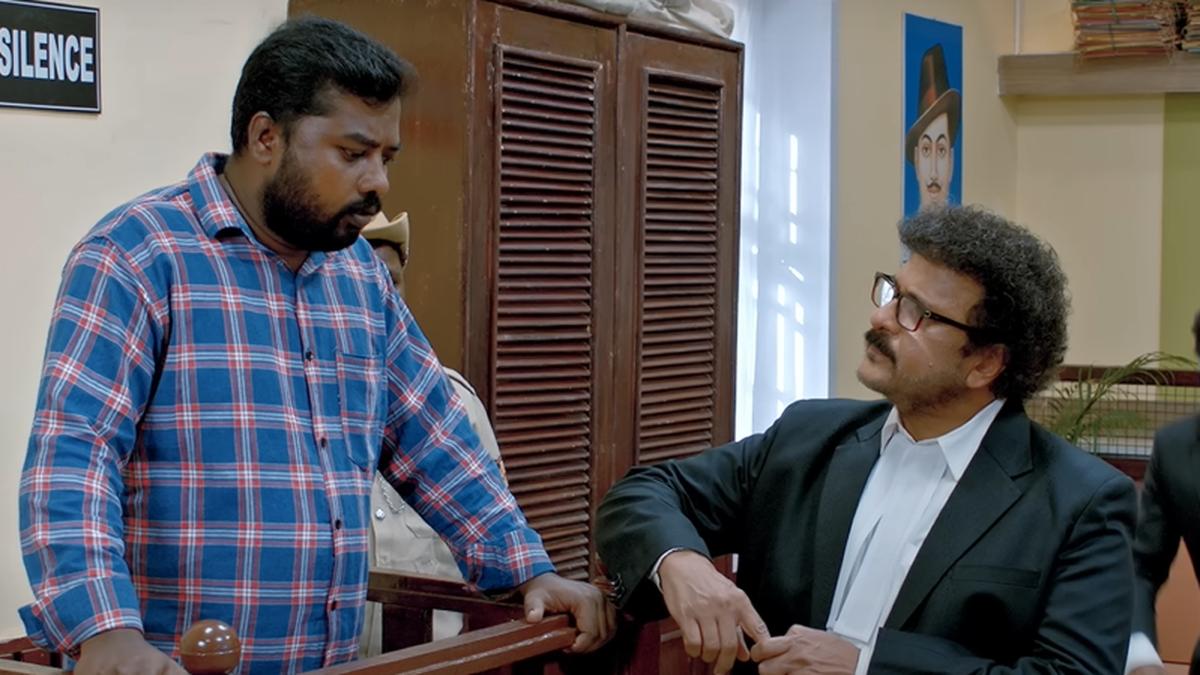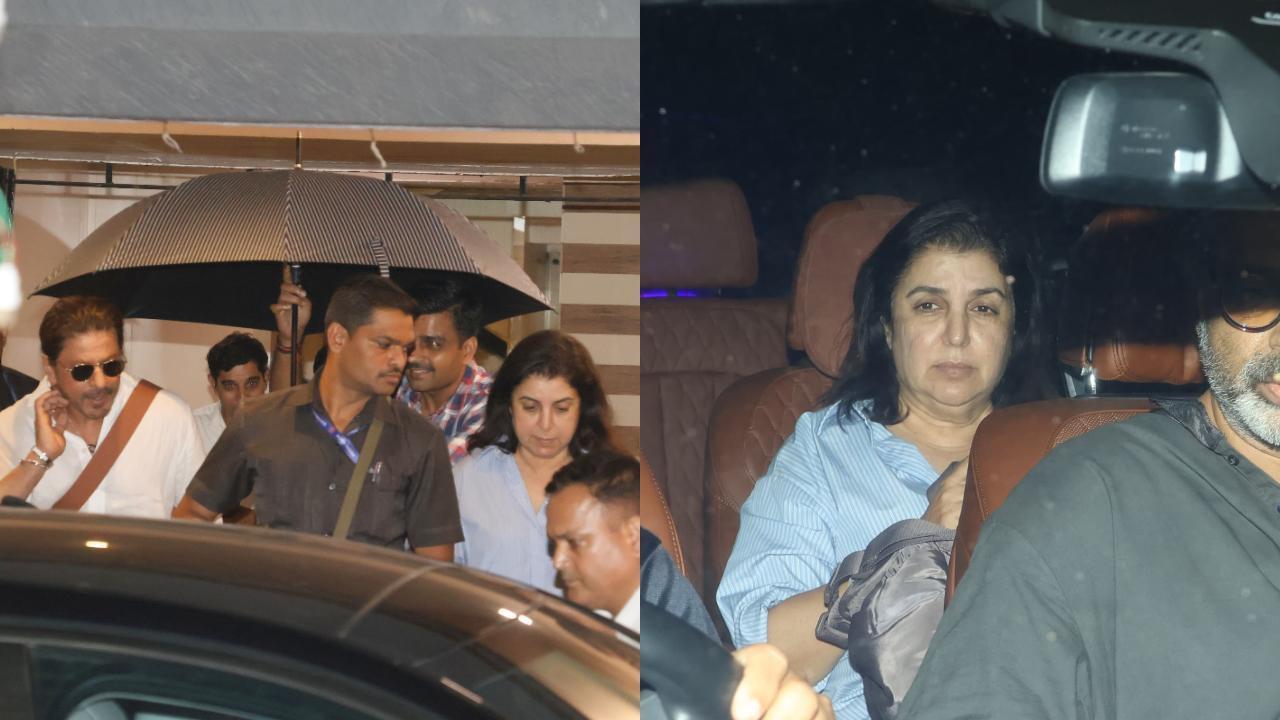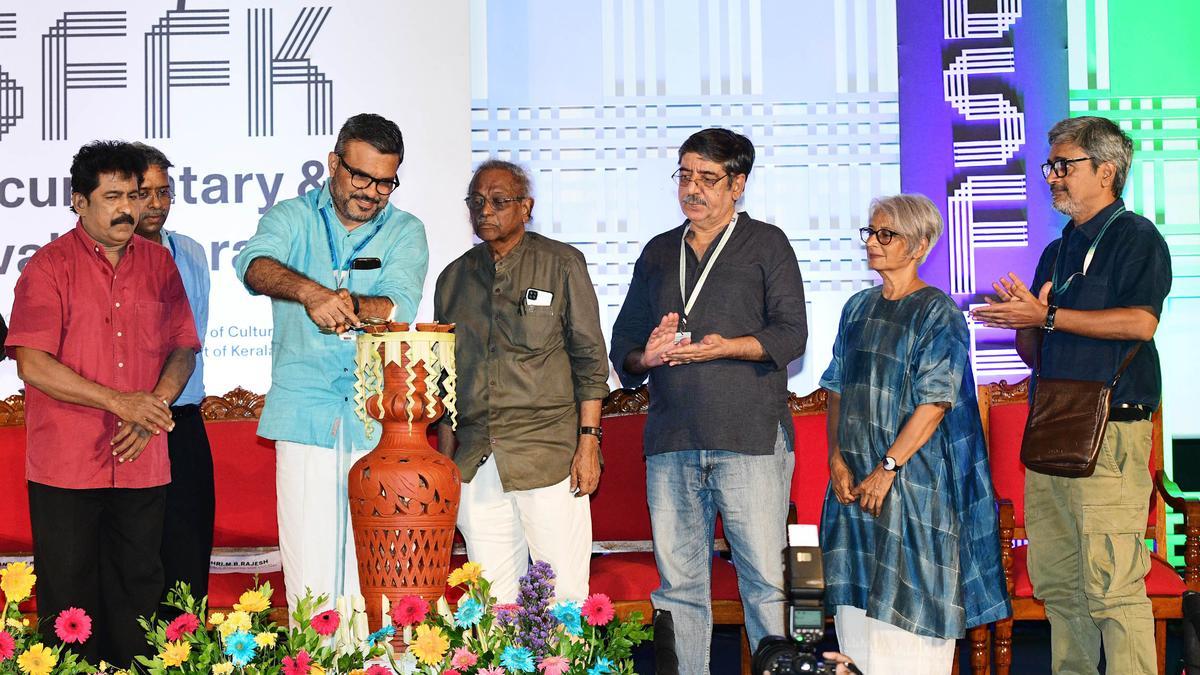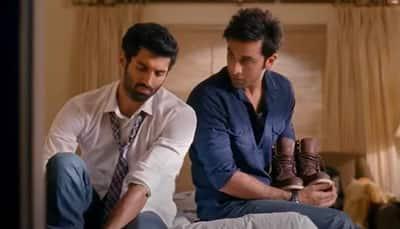
In director Gururaj Kulkarni’s latest film, *The Judgement*, we are introduced to an intricate narrative that revolves around the complexities of the Indian legal system rather than the traditional whodunnit format. The central plot follows Anil (Diganth Manchale), an investment banker who finds himself embroiled in a murder scandal. He is accused of killing his client, Roopa (Roopa Rayappa), who was also the head of a noted NGO. Despite the mounting evidence against him and the prowess of Govind (V. Ravichandran), reputed as the finest lawyer determined to prove Anil’s guilt, there is an underlying sense that Anil may not be the culprit.
From the onset, *The Judgement* sets a tone of suspense, although much of the tension is somewhat diluted due to its predictability. The film’s true novelty lies in its exploration of the inner workings of the legal proceedings rather than the murder mystery itself. Viewers are consistently ahead of the narrative, often finding themselves aware of the nuances before the characters do. This forward-following of audience perspective necessitates engaging dialogue and courtroom theatrics to maintain interest.
The plot thickens when Govind undergoes a transformation, beginning to question his initial stance and seeking the truth. This shift provides a deeper philosophical inquiry into the motivations of legal professionals. Govind’s character is driven by his desire to be hailed as the best, often accepting cases that inflate his ego. His wife, portrayed by Meghana Gaonkar, serves as the moral compass, questioning his equating of personal pride with professional integrity, leading him to introspect profoundly on whether his pride is overshadowing the truth.
*The Judgement* picks up pace as Govind dives deeper into the case, uncovering connections between Roopa’s murder and other unsolved cases. This journey educates the audience about various laws and courtroom intricacies, blending legal jargon with cinematic drama. However, despite the attempts to create a profound legal thriller, the film cannot shake off a somewhat dated television serial aesthetic.
. The score, particularly during high-stress investigative scenes such as a police officer scrutinizing the murder scene, often feels overwrought and jarring.
The production design, especially the courtroom setup, seems lackluster and outdated, failing to evoke the gravitas that typically accompanies legal dramas. The depiction of characters such as Anil’s parents, portrayed by Rangayana Raghu and Rekha Kudligi, often succumb to melodramatic tropes we associate with soap operas, diminishing the intended gravitas. Another character, Qureshi, a corrupt minister, epitomizes the exaggerated villain archetype. Krishna Hebbale’s performance as Qureshi does provide a layer of complexity, slightly redeeming the cliched portrayal. Moreover, the peripheral commentary from junior lawyers on Govind’s supreme abilities often distracts from the storyline, adding unnecessary fluff.
A significant shortcoming of *The Judgement* is its reluctance to delve deeper into the whodunnit aspect of the plot. The clues emerge too conveniently, making the unraveling of the mystery less challenging and more predictable. Despite this flaw, the film manages to hold the audience’s attention through the courtroom scenes, thanks mainly to Ravichandran’s commanding presence. However, the torrent of legal information can sometimes be overwhelming, potentially leading to viewer fatigue.
Yet, despite its predictability and occasional lapses into melodrama, *The Judgement* is not entirely forgettable. It stands as Gururaj Kulkarni’s sophomore film, succeeding in parts to keep the audience engaged. The narrative’s strengths lie in its character studies and exploration of the legal system, a perspective that might be enlightening for viewers less familiar with the intricacies of law.
In summation, *The Judgement* offers a blend of engaging courtroom drama punctuated by predictable twists and dated production aesthetics. It serves as an acceptable entry in Gururaj Kulkarni’s directorial portfolio, providing a window into the Indian legal mechanism despite not fully capitalizing on its murder mystery potential. While it may not be a groundbreaking piece of cinema, it offers enough to keep the viewers seated, invested in seeing how the case unfolds.










